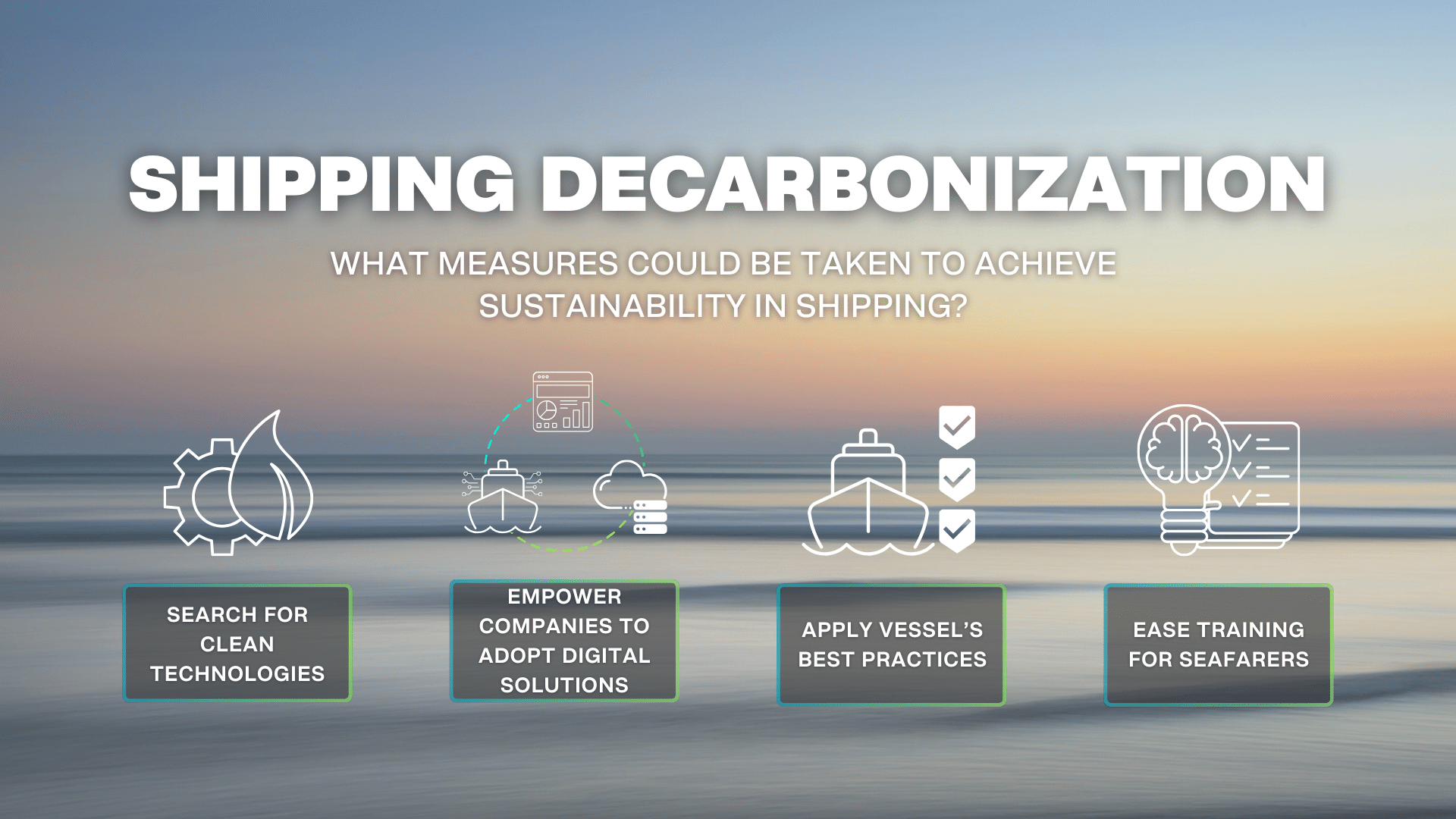The maritime industry stands at the nexus of global trade and environmental stewardship. Shipping companies, policymakers, and seafarers alike are recognizing the pressing need to pivot towards sustainable practices to preserve our planet’s health. Committing to shipping decarbonization is a multifaceted effort that calls for an embrace of cleaner technology, meticulous digital reporting, and comprehensive training for seafarers.
Embracing Cleaner Technology for a Sustainable Tomorrow
The push for decarbonization in shipping is fueled by innovations in cleaner technology, which are reshaping the industry’s landscape. A notable surge in interest is observed in alternative fuels like LNG, hydrogen, and biofuels, each showing great potential for substantial reductions in greenhouse gas emissions.
However, the transition to these fuels alone does not offer a comprehensive solution. While numerous alternative fuel projects have been announced, their implementation will take time and cannot be a solution by itself.
Learn More on how Data can support Marine Biofuels
Ship design and the strategic utilization of operational data as a cornerstone are also necessary advancements. By embracing these cutting-edge technologies, the maritime sector stands to significantly reduce its carbon footprint while maintaining optimal levels of efficiency and reliability.
This aligns with the overarching regulatory framework governing the maritime sector. The International Maritime Organization (IMO) has laid out ambitious targets for reducing greenhouse gas (GHG) emissions, aiming for net-zero emissions by 2050. Concurrently, the IMO has implemented the Carbon Intensity Indicator (CII), which measures a vessel’s carbon intensity over time, and the Ship Energy Efficiency Existing Ship Index (EEXI) underscoring the industry’s transition towards sustainability.
Moreover, regulatory mechanisms such as MARPOL Annex VI frameworks and ongoing initiatives like data collection systems, serve as keystones in propelling the maritime sector towards a greener and more environmentally conscious future.
Navigating Towards Sustainability Through Digital Reporting
The adage “you can’t manage what you don’t measure” is particularly relevant when it comes to decarbonization. Digitalization of maritime operations is revolutionizing how shipping companies manage their fleets, optimize operations, and monitor environmental performance. Often overlooked, this low-hanging fruit is the foundation of decarbonizing operations.
Moreover, data management and integration onboard vessels are increasingly recognized as integral components in the adoption of green technologies. With the use of advanced sensors and data analytics platforms, vessels can now collect and analyze vast amounts of information instantly. This provides invaluable insights into ship operations such as fuel consumption & emissions, engine performance, or navigational parameters.
Hence, by managing and integrating this data, shipowners and operators can identify opportunities for optimization, streamline processes, and make data-driven decisions for better sustainable actions.
The maritime industry can gain a better view of its operations and identify areas for improvement by integrating data from disparate sources such as engine sensors, fuel monitoring systems, weather forecasts, and navigational charts…. With Cloud-based platforms vessels can now transmit data in real-time to onshore offices, allowing for remote monitoring, analysis, and decision-making. This real-time connectivity facilitates proactive maintenance and efficiency leading to reduced fuel consumption, and lower emissions which help identify the most suitable green strategy for their fleet.
Related article: A three-point vessel decarbonization plan: data, collaboration, action.
In the context of shipping’s decarbonization journey, this is increasingly crucial. The transition demands rapid integration of novel onboard technologies, encompassing digital platforms, advanced propulsion systems, and ultimately, alternative fuels.
Each of these innovations poses unique safety concerns. Collaborative training initiatives play a vital role in overcoming the industry’s training and upskilling hurdles. They empower seafarers with the requisite expertise and practical skills to navigate the safe and efficient adoption of emerging fuels and technologies.
Training Seafarers for a Greener Horizon
Education and training are pivotal to adopting a culture of shipping decarbonization, equipping crews to implement meaningful onboard changes.
However, several hurdles must be overcome before establishing training on new environmental goals. These encompass regulatory frameworks, practical experience, infrastructure readiness, and accessible training for seafarers. Collaboration across the industry is essential to address these challenges and ensure a smooth transition to sustainable practices.
In addition to instruction on alternative fuels, seafarers should receive guidance on adapting to emerging green technologies, such as data reporting systems. This necessitates not only technical expertise but also a profound comprehension of their pivotal role in environmental stewardship.
Moreover, integrating these new technologies and practices requires a change management process. It is essential to ensure that crew members are equipped with the necessary skills and understanding to leverage digital reporting tools effectively, incorporating sustainable practices into their daily routines.
Therefore, seafarers must be well-versed in operating new equipment and understand best practices for eco-friendly operations at sea. They play a pivotal role in driving decarbonization and act as frontline ambassadors for sustainability initiatives. Their engagement is paramount as training programs emphasize environmental awareness and foster understanding of the ecological impact.
Cultivating a culture of sustainability is essential, encouraging the sharing of ideas and best practices while fostering ownership and accountability. Soft skills and leadership qualities are vital for navigating challenges and regulations, and continuous learning ensures adaptation to advancements.
Discover how using data analytics can help monitor ship best practices.
Closing-thoughts:
Shipping decarbonization has never been more evident and embarking on this journey demands coordinated action on various fronts. Integrating cleaner technology, by harnessing digital reporting capabilities, adopting alternative fuels, installing energy-efficient propulsion systems, or implementing emissions reduction technologies: data-driven insights empower shipping companies to align their investment decisions with sustainability goals. This concerted effort sets the maritime industry on a path toward a greener and more sustainable future.

